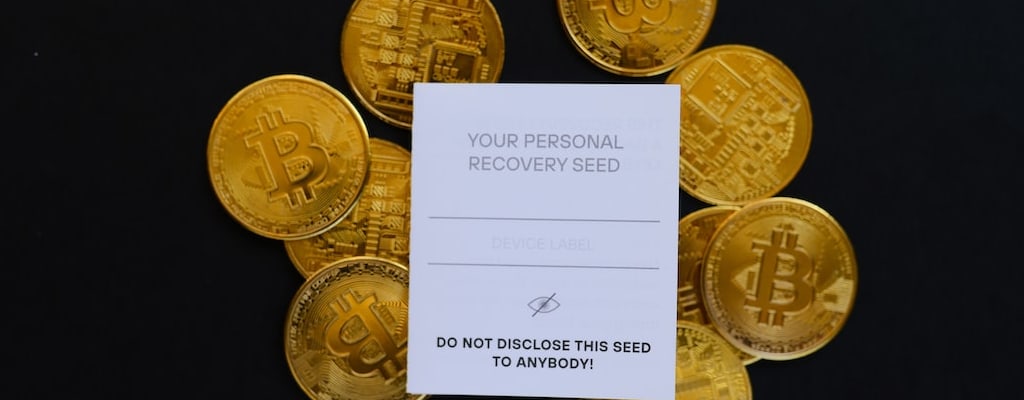circle back: Idiom Meaning and Origin
What does ‘circle back’ mean?
The idiom "circle back" means to revert or return to a previous topic or issue in order to provide further information or follow up on a discussion. It implies closing a conversation loop or completing a task that was left unfinished.

Idiom Explorer
The idiom "turn back" means to go back or reverse direction. It is commonly used to express the action of returning to a previous location or reversing a decision or action.
The idiom "double back" means to turn around and go back in the opposite direction. It is often used to describe a change in plans or a reversal of a previous decision.
The idiom "circle the drain" means to be in a rapid decline or nearing the end. It suggests a situation or person approaching a point of no return or impending failure.
The idiom "bring round" means to persuade or convince someone to change their opinion or viewpoint.
The idiom "bounce back" means to recover quickly from a setback or failure, showing resilience and the ability to overcome obstacles.
The idiom "back up" means to provide support or assistance to someone or something. It can also refer to the act of moving or driving in reverse.
The idiom "back to the drawing board" means to start over or to go back to the beginning of a task or project because the previous attempt or plan was unsuccessful or flawed.
Uncovering the Linguistic Journey: Circle Back Insight
Circle back is an idiom commonly used in American English. It is often used in business and professional contexts to describe the act of revisiting a topic or returning to a previous point in a conversation or discussion. The idiom circle back is derived from the literal action of moving in a circular path and coming back to a starting point. This idiom has gained popularity in recent years and is often used in both spoken and written language.
The origin of the idiom circle back is uncertain. There is no definitive source or historical record that specifically explains the origin of this phrase. It is likely that circle back developed organically over time through the evolution of language and idiomatic expressions. The concept of circling back, or returning to a starting point, has long been used metaphorically in various forms of communication.
The idiom full circle is related to circle back. Full circle indicates the completion of a cycle or a return to the original starting point. It can be used to describe a situation where someone or something has come back to a previous state or condition. For example, "After years of traveling, I've come full circle and returned to my hometown." In this case, full circle emphasizes the completion of a journey or the return to a familiar place or situation.
The idiom double back is another related phrase to circle back. Double back refers to the act of retracing one's steps or returning to a previous location. It can also be used metaphorically to describe the act of revisiting a topic or idea. For example, "Let's double back to that last point you made and discuss it further." In this case, double back emphasizes the act of revisiting or reconsidering something that was previously mentioned or addressed.
turn back is yet another idiom related to circle back. Turn back suggests the act of returning or going back in the opposite direction. It can be used to describe the action of changing one's course or reversing a decision. For example, "We need to turn back and reevaluate our strategy." In this case, turn back emphasizes the need to reconsider or reassess a previous decision or plan of action.
back to square one is also a related idiom to circle back. Back to square one signifies a return to the beginning or starting point of something. It can be used to describe a situation where progress has been lost or a setback has occurred. For example, "After spending hours trying to fix the problem, we're back to square one." In this case, back to square one emphasizes the frustration or disappointment of having to start over or make no progress.
The idiom circle back is commonly used in professional and business settings. It is often employed in discussions, meetings, or emails to indicate the need to revisit a topic or continue a conversation at a later time. This can be done for a variety of reasons, such as gathering more information, seeking additional input, or making a decision after further consideration. Circle back is a concise and efficient way to convey the idea of revisiting a subject without the need for lengthy explanations.
The idiom full circle can be applied in both professional and personal contexts. In a professional setting, it can be used to describe a situation where a project or initiative has come back to its original starting point or objective. For example, "After several detours, the project has come full circle and is now focused on the initial goals." In this case, full circle emphasizes the completion of a cycle and the return to the original purpose or intention.
In a personal context, the idiom full circle can be used to describe a journey or experience that has come to a complete cycle or has returned to a familiar place or situation. For example, "After years of searching, I've come full circle and realized that happiness can be found right at home." In this case, full circle emphasizes the realization or understanding that what one was searching for was always within reach.
The idiom double back is versatile and can be applied in various contexts. In a professional setting, it can be used to suggest revisiting a previous idea or proposal for further consideration. For example, "Let's double back to the concept you mentioned earlier and explore its potential." In this case, double back emphasizes the importance of taking a second look at something that was previously mentioned or discussed.
In a personal conversation, the idiom double back can be used to indicate the act of retracing one's steps or returning to a previous topic. For example, "I need to double back to the point you made earlier about traveling. It sparked some interesting thoughts." In this case, double back highlights the desire to revisit a conversation point or idea that piqued curiosity or interest.
The idiom turn back can be applied in professional and personal situations. In a professional context, it can be used to suggest reconsidering a decision or changing course. For example, "Given the new information, we may need to turn back and reassess our approach." In this case, turn back emphasizes the importance of adapting or adjusting plans based on new insights or circumstances.
In a personal situation, the idiom turn back can be used to describe a change in direction or a decision to return to a previous path. For example, "After exploring different career paths, I realized my true passion and turned back to pursue it." In this case, turn back emphasizes the act of returning to a path or goal that was previously abandoned or put on hold.
The idiom back to square one is often used to describe setbacks or the need to start over. In a professional setting, it can be used to convey the frustration or disappointment of a project losing progress or encountering obstacles. For example, "The unexpected delay put us back to square one, requiring us to reassess our entire timeline." In this case, back to square one emphasizes the need to restart or reevaluate a project or plan.
In a personal context, the idiom back to square one can be used to describe the feeling of starting over or making no progress in a personal endeavor. For example, "Despite my efforts, my attempts to learn a new language keep putting me back to square one." In this case, back to square one emphasizes the continuous struggle or lack of progress in achieving a personal goal or ambition.
It is important to note that circle back is an informal idiomatic expression and may not be suitable for all situations. It is more commonly used in casual or conversational contexts rather than formal or academic writing. There may be alternative expressions or synonyms that can be used depending on the specific context or audience.
Circle back is an idiom that has become increasingly popular in American English, particularly in professional and business settings. Its meaning is derived from the concept of returning to a starting point or revisiting a topic. While the exact origin of this idiom is unknown, it is widely used and understood in contemporary language. Circle back serves as a concise and convenient way to express the need for further discussion or follow-up. Its versatility allows for applications in both formal and informal contexts, providing speakers with a versatile tool for effective communication.
Example usage
Examples:
- We can discuss the budget in our next meeting and then circle back to the topic of marketing strategies.
- Let's wrap up this discussion for now and circle back to it later when we have more information.
- I'll reach out to the client to gather more details and then circle back with you to finalize the project proposal.
The idiom "circle back" is commonly used to indicate the act of returning to a previous topic or task after temporarily moving away from it. It suggests the idea of completing a loop or closing a circle by revisiting something that was left unfinished or put on hold. The phrase is often used in professional or organizational contexts, where it is important to come back to certain matters and address them in a comprehensive manner. It can also imply the need for further discussion or action, indicating that the topic will be revisited at a later time.
More "Phrases" idioms



